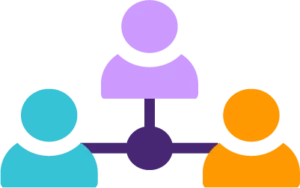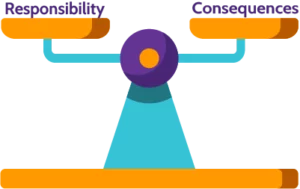
Driven by Connections – Fueled by Accountability
Professional Learning
Do you have the discipline doldrums?
Driven by Connections
Who teaches teachers how to connect with students? We do! Our Connection-Focused learning opportunities offer practical tools and processes for classroom educators to build, maintain, and manage connections with and among students. However, campus leaders should not overlook these opportunities. Leadership needs to have an understanding of these tools and processes to support successful implementation.
Fueled by Accountability
Traditional approaches to school discipline have focused on doling out consequences. However, when students understand and are accountable for how their behavior impacts others the odds of meaningful change increase. Our Accountability-Focused strategies and processes address the point where accountability and consequences collide. These opportunities are designed for campus administrators and other staff who address discipline referrals beyond the classroom.
-
ConnectionDriven
-
Connection-Driven ClassroomSubtitle

Connection-Driven
Learning Opportunities
Participants will:
- learn a process proven to decrease Tier 1 behaviors
- leave with four tools that take two minutes or less, a process to build a classroom agreement that establishes norms, provides a process to reestablish connections, and addresses a specific behavior.
- walk away with an implementation guide and a connection planner
- have opportunities to network and share ideas with other educators
- have access to ongoing support
Participants will:
- network and share ideas with other educators
- experience a variety of circles
- learn to manage challenging behaviors within the circle
- learn to build and facilitate circles using the Differentiated Discipline model
- walk away with self-generated Circle Scripts
- have access to ongoing support
Click a tab on the left to learn more about our professional learning opportunities
-
AccountabilityFocused
-
Disrupting DisciplineStop Reacting - Start Responding

Accountability-Focused
Learning Opportunities
Participants will:
- reflect on current corrective measures
- consider the use of a “third alternative” to misbehavior
- distinguish between symptoms and problems
- walk away with a strategies, needs, and outcomes process
- have access to ongoing support
- network and share ideas with other administrators
Participants will:
- network and share ideas with other administrators
- walk away with 4 restorative interventions to assist with repairing connections
- discover innovative techniques that will help students develop more effective problem-solving skills
- have access to ongoing support
- experience and facilitate a restorative conversation
- walk away with a process to shape and guide a restorative conference
- learn the difference between a restorative conference and a circle
- understand the impact of harm
The Re-Entry Process is designed to ensure students returning from suspension or alternative placement are received in a manner in which purposeful preparation and collaborative planning have occurred prior to return. The Re-Entry Process supports academic, behavioral, and emotional success by identifying individual students’ support needs and then implementing multi-tiered systems of support.
Participants will:
- network and share ideas with other administrators
- learn DD’s approach to preparation through the Re-Entry Circle Student Preparation Guide
- practice Re-Entry Circle preparation
- learn about the components of a Re-Entry Circle
- walk away with DD’s Re-Entry Circle process, Circle scripts, and Student Support Plan
- have access to ongoing support
Click a tab on the left to learn more about our professional learning opportunities